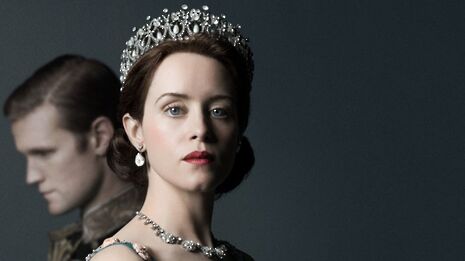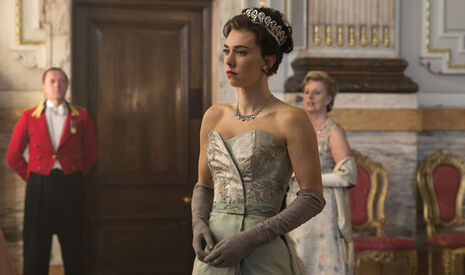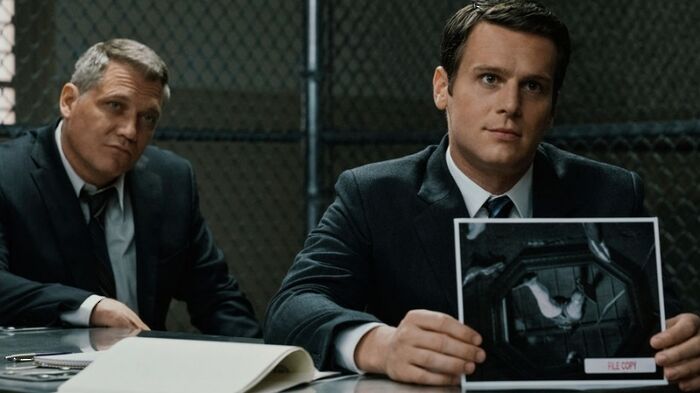The Crown review: ‘decadence is everywhere’
Having thoroughly enjoyed the first season, Mariam Abdel-Razek looks deeper below the gilded surface of its return.

It seems as though the entire world has been waiting for the new season of The Crown. Netflix’s famously expensive venture – in fact, their most expensive to date – exploded back onto our screens this month with high expectations following a critically lauded debut series, made even higher by the rumours that the £100 million budget for last season had been doubled for this one. Certainly, in terms of looks, those millions have been put to good use; the cinematography is glorious as ever, and Jane Petrie has not cut any corners with her costume design either.
“What Foy does with Morgan’s silences, she more than does with his words too”
The entire premise of this season hinges on the assumption that Peter Morgan is making bold strokes with new stories and new faces. This is certainly the case to some extent; we are gifted with new characters – namely, the gloriously irreverent Matthew Goode as Anthony Armstrong-Jones and a surprisingly sympathetic turn from Anton Lesser as Harold Macmillan – new plot-lines, and a movement into literal new territories as we become more aware of the Empire over which the titular Crown reigns.
But what our attention is really drawn to is the things that have stayed the same. Decadence is everywhere in this season of The Crown. It is not just prettier to look at; there is more scandal, more smoking, and a lot more sex. But among the madness of the sixties, Claire Foy sticks to her guns with yet another spectacularly understated performance. As the new series stretches both Matt Smith (though still not quite enough) and Vanessa Kirby (the perfect amount), Foy remains the engagement in these ten new hours of engaging television.

This was hailed Philip’s ‘season’, and, indeed, we are taken deep into his past and character, but the fact remains that, despite Smith’s best efforts, our interest in his character is largely shaped by Elizabeth’s responses to his actions than the copious number of flashbacks we are afforded (‘Paterfamilias’, the penultimate episode of the season, offers perhaps too many).
“Suddenly Foy’s already blazing light brightens by several watts”
In this season, Foy’s talent comes not just in her own scenes, but in the foundation she offers for Smith and Kirby to shine. Kirby in particular almost steals the show for herself – her two episodes of the season (‘Beryl’ and ‘Matrimonium’) are easily the standouts; director Benjamin Caron knows how to bring out the best in her, allowing her to pine, pout, storm. and smoke all in equally delightful measure, with the simple explanation that she is now a ‘modern woman’.
But to give praise to Kirby is by no means deny it to Foy. With the departure of the current cast, we may feel perhaps a pang of regret. Foy has more than earned her Golden Globe (with, perhaps, a second one on the horizon) with the silences that Morgan so often leaves her, but it is in this season that those silences are becoming more and more deafening. We, like the 1960s British public, are becoming more and more desperate to know what it is that makes Elizabeth tick – but we are yet to be gifted with an equivalent for her character of Philip’s flashbacks or Margaret’s monologues.
It is only eight episodes into the season, in the Stephen Daldry-directed ‘Dear Mrs Kennedy’ that we are gifted with the pleasant surprise of an Elizabeth-centric episode. Suddenly Foy’s already blazing light brightens by several watts. What she does with Morgan’s silences, she more than does with his words too, delivering lines with sharp wit and deeply felt emotion as she sees fit.
No wonder that Foy herself labelled it as her favourite episode – the exhilaration that Elizabeth feels at her own action, we are compelled to feel too, and her supporting cast are just as energised; Smith proves himself to be the master of a facial expression that somehow conveys both indignation and admiration for his wife. Unlike Kirby, whose scenes alone are the most harrowing, it is when he shares the screen with Foy that he seems to come alive, with the pair moving through anger, flirtation, and deep affection with ease. This is testament not only to his own skill, but to Foy’s as well.
The Crown undoubtedly remains as delightful as ever, and now, fully committed to its monumental task of charting one of the longest reigning monarchs in history, bolder and more assured in its approach. But its fleeting focus on Elizabeth only brings to light a more pressing question – how long can Morgan get away with a show that is not quite about its titular subject? And has he missed a trick by not doing it with Foy on board?
 News / Cambridge academics sign open letter criticising research funding changes22 February 2026
News / Cambridge academics sign open letter criticising research funding changes22 February 2026 News / Supporters protest potential vet school closure22 February 2026
News / Supporters protest potential vet school closure22 February 2026 News / University Council rescinds University Centre membership20 February 2026
News / University Council rescinds University Centre membership20 February 2026 News / Hundreds of Cambridge academics demand vote on fate of vet course20 February 2026
News / Hundreds of Cambridge academics demand vote on fate of vet course20 February 2026 Comment / A tongue-in-cheek petition for gowned exams at Cambridge 21 February 2026
Comment / A tongue-in-cheek petition for gowned exams at Cambridge 21 February 2026









